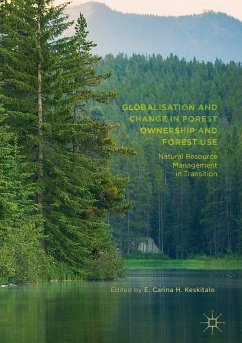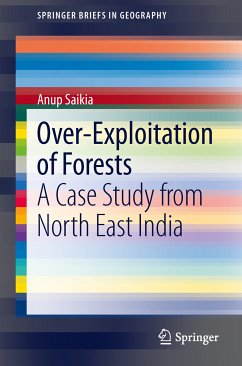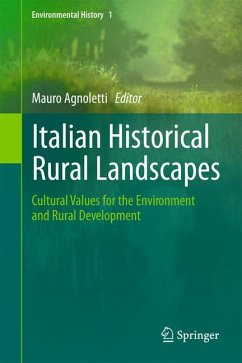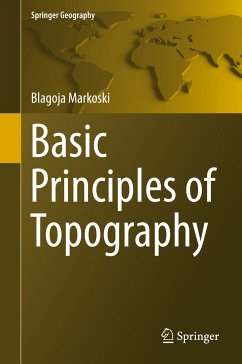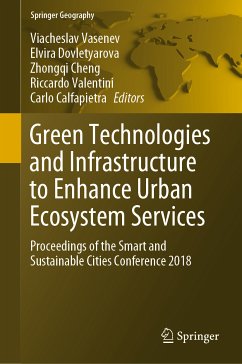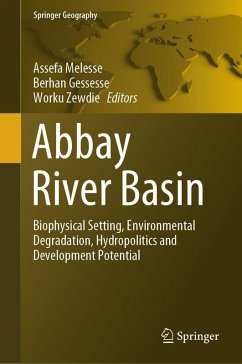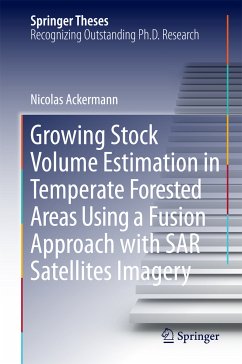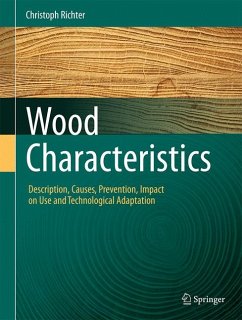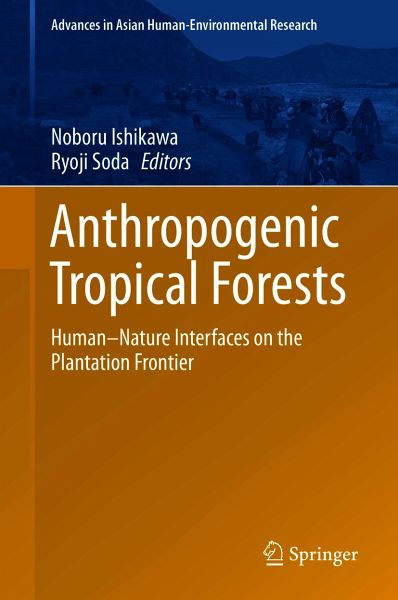
Anthropogenic Tropical Forests (eBook, PDF)
Human-Nature Interfaces on the Plantation Frontier
Redaktion: Ishikawa, Noboru; Soda, Ryoji
Versandkostenfrei!
Sofort per Download lieferbar
120,95 €
inkl. MwSt.
Weitere Ausgaben:

PAYBACK Punkte
60 °P sammeln!
The studies in this volume provide an ethnography of a plantation frontier in central Sarawak, Malaysian Borneo. Drawing on the expertise of both natural scientists and social scientists, the key focus is the process of commodification of nature that has turned the local landscape into anthropogenic tropical forests. Analysing the transformation of the space of mixed landscapes and multiethnic communities-driven by trade in forest products, logging and the cultivation of oil palm-the contributors explore the changing nature of the environment, multispecies interactions, and the metabolism betw...
The studies in this volume provide an ethnography of a plantation frontier in central Sarawak, Malaysian Borneo. Drawing on the expertise of both natural scientists and social scientists, the key focus is the process of commodification of nature that has turned the local landscape into anthropogenic tropical forests. Analysing the transformation of the space of mixed landscapes and multiethnic communities-driven by trade in forest products, logging and the cultivation of oil palm-the contributors explore the changing nature of the environment, multispecies interactions, and the metabolism between capitalism and nature.
The project involved the collaboration of researchers specialising in anthropology, geography, Southeast Asian history, global history, area studies, political ecology, environmental economics, plant ecology, animal ecology, forest ecology, hydrology, ichthyology, geomorphology and life-cycle assessment.
Collectively, the transdisciplinary research addresses a number of vital questions. How are material cycles and food webs altered as a result of large-scale land-use change? How have new commodity chains emerged while older ones have disappeared? What changes are associated with such shifts? What are the relationships among these three elements-commodity chains, material cycles and food webs? Attempts to answer these questions led the team to go beyond the dichotomy of society and nature as well as human and non-human. Rather, the research highlights complex relational entanglements of the two worlds, abruptly and forcibly connected by human-induced changes in an emergent and compelling resource frontier in maritime Southeast Asia. Chapters 'Commodification of Nature on the Plantation Frontier' and 'Into a New Epoch: The Plantationocene' are available open access under a Creative Commons Attribution-NonCommercial-NoDerivatives 4.0 International License via link.springer.com.
The project involved the collaboration of researchers specialising in anthropology, geography, Southeast Asian history, global history, area studies, political ecology, environmental economics, plant ecology, animal ecology, forest ecology, hydrology, ichthyology, geomorphology and life-cycle assessment.
Collectively, the transdisciplinary research addresses a number of vital questions. How are material cycles and food webs altered as a result of large-scale land-use change? How have new commodity chains emerged while older ones have disappeared? What changes are associated with such shifts? What are the relationships among these three elements-commodity chains, material cycles and food webs? Attempts to answer these questions led the team to go beyond the dichotomy of society and nature as well as human and non-human. Rather, the research highlights complex relational entanglements of the two worlds, abruptly and forcibly connected by human-induced changes in an emergent and compelling resource frontier in maritime Southeast Asia. Chapters 'Commodification of Nature on the Plantation Frontier' and 'Into a New Epoch: The Plantationocene' are available open access under a Creative Commons Attribution-NonCommercial-NoDerivatives 4.0 International License via link.springer.com.
Dieser Download kann aus rechtlichen Gründen nur mit Rechnungsadresse in A, B, BG, CY, CZ, D, DK, EW, E, FIN, F, GR, HR, H, IRL, I, LT, L, LR, M, NL, PL, P, R, S, SLO, SK ausgeliefert werden.



